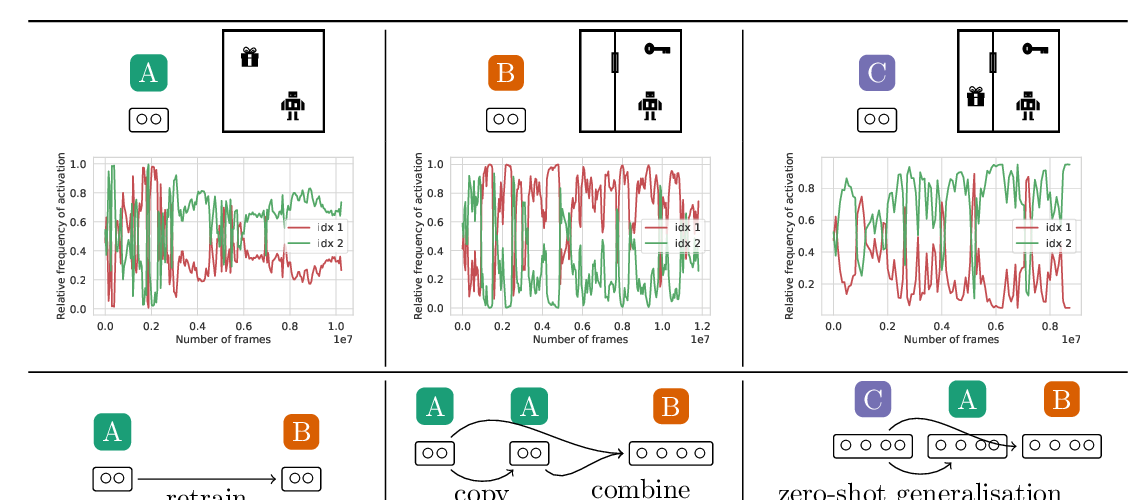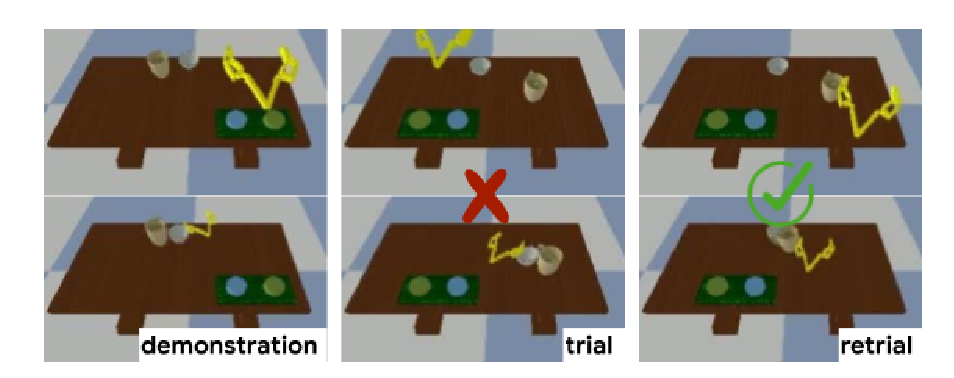Abstract:
In this paper, we present an approach to learn recomposable motor primitives across large-scale and diverse manipulation demonstrations. Current approaches to decomposing demonstrations into primitives often assume manually defined primitives and bypass the difficulty of discovering these primitives. On the other hand, approaches in primitive discovery put restrictive assumptions on the complexity of a primitive, which limit applicability to narrow tasks. Our approach attempts to circumvent these challenges by jointly learning both the underlying motor primitives and recomposing these primitives to form the original demonstration. Through constraints on both the parsimony of primitive decomposition and the simplicity of a given primitive, we are able to learn a diverse set of motor primitives, as well as a coherent latent representation for these primitives. We demonstrate both qualitatively and quantitatively, that our learned primitives capture semantically meaningful aspects of a demonstration. This allows us to compose these primitives in a hierarchical reinforcement learning setup to efficiently solve robotic manipulation tasks like reaching and pushing. Our results may be viewed at https://sites.google.com/view/discovering-motor-programs.


